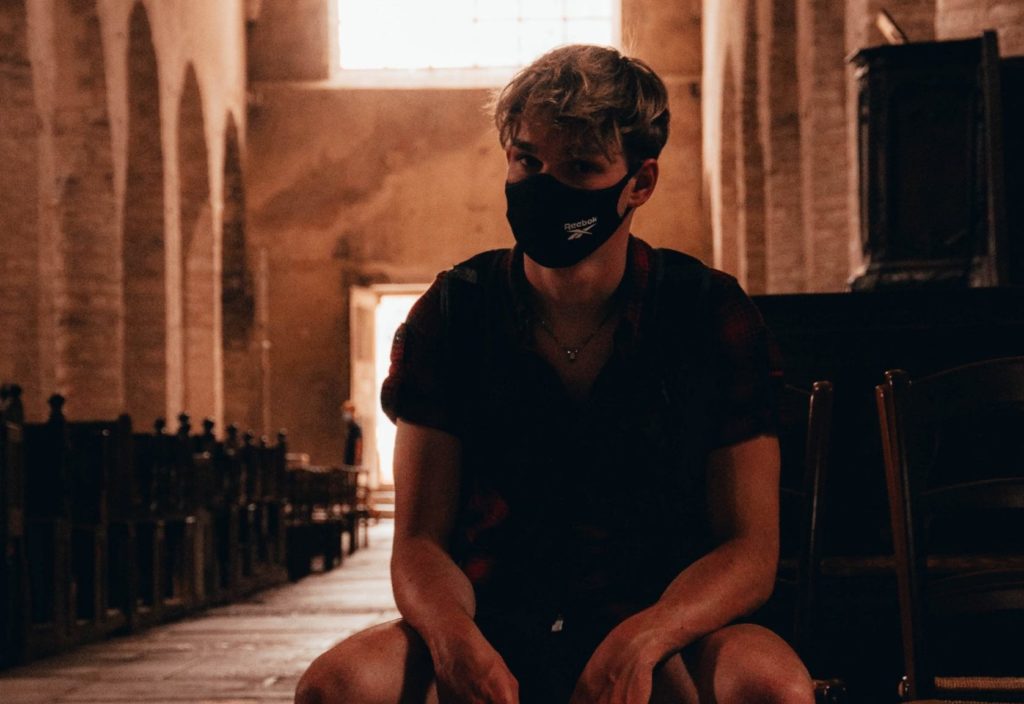“What if they don’t come back?”
As vaccination spreads and pandemic restrictions ease, this is the anxious question in the back of many church leader’s minds. Some churches haven’t met in a long time. Others have gathered in limited ways that never really compared to their pre-pandemic participation.
When a Church says “it’s time to regather!” some will respond with excitement, ready to reconnect with friends and worship corporately. Others will feel a sense of dread, unsure if these gatherings will feel safe, either physically or emotionally. Some might not be paying attention at all.
Regathering is difficult for several reasons. There are ever-changing logistics of moving back into unused spaces. Some feel wounded by or distrustful of churches, especially in the U.S., because of how some Christians participated in the hyper-politicization of pandemic, political and social issues over the last year.
Then there’s the problem of inertia.
Church members have had over a year to spend their Sundays sleeping in, traveling, crunching, or even visiting other churches. Many may just not feel the need to gather again.
The natural question for Church leaders to ask is “how do we get our people to come back?”
But regathering also offers opportunities for churches to reimagine their mission and cast a new vision for their congregation after COVID.
How Can We Re-Present Ourselves to Our Community?
What are your neighbors doing on Sunday morning? What about those who live next to your church building?
One tangible sign of the pandemic for many people is the lack of traffic on Sunday mornings. Sadly, the direct neighbors around your church’s meeting space may know very little about you.
This could be the perfect time to engage your neighborhood in a new way. Announcing your church’s regathering gives you an excuse to send mailers, door hangers, or even knock on doors. At other times you might feel like you need a reason to “bother” people. But now you have one!
This could be the perfect time to engage your neighborhood in a new way.
Tweet this.
Connecting with your neighbors is a chance to get to know them and their needs, not to talk about yourself. As you connect, you can ask questions like:
“What has life been like for you during the pandemic? What would help you today?”
“What are some needs and opportunities you see in the neighborhood? How might our church community help?”
“Is there any way I can pray for you?”
Because organizations of all sorts are going through a sort of re-start, now is the perfect time to begin building relationships with the people you’ve seen around but never met.
How Can We Build on What We’ve Learned?
The pandemic led even the most traditional local churches to be more innovative. Congregations learned Zoom and Facebook Live, conducted parking lot services, and provided food for hungry neighbors. Forced creativity has helped unengaged church members find new roles and has allowed new people to encounter churches online or in unexpected settings.
Churches now have the opportunity to use what they’ve learned and continue to explore new structures for discipleship and new expressions of Church.
Churches now have the opportunity to use what they've learned and continue to explore new structures for discipleship and new expressions of Church.
Tweet this.
Are there individuals who have taken on leadership in ways they never did before the pandemic? Consider what their next steps in discipleship and leadership growth could be.
Have you met new people in your community through your efforts to help with pandemic needs like food or loneliness? Consider how the ministries you’ve launched might mature towards a fuller expression of Church.
Have your online experiences engaged people who cannot attend your church otherwise? Consider how you can move beyond a simple broadcast of your weekend gathering to daily interactions that build a sense of community.
How Can We Bring Church to People?
When the pandemic shut down church gatherings, it also closed gyms and movie theatres. People found new ways to exercise, relax and connect. At one point, there was a shortage of bicycles, and sales of camping gear have exploded.
At the same time, the pandemic removed the “social pressure” people felt to go to parties, work in offices, and, yes, attend church on Sunday. While these in-person venues will reopen, there’s no going back. Movies will continue to be released online, outdoor excursions will remain popular, and some businesses may never return to their offices.
One surprise of the pandemic for churches was the new ways it allowed people to engage in new ways. For instance, a small church in rural Texas started using Zoom for their weekend gatherings. A long-time member of their community was blind and found that interacting on Zoom was more accessible to them than in-person gatherings. This person started inviting others from the blind community, and they quickly made up a sizable portion of their gatherings.
Other churches elected to meet in smaller groups as part of backyard gatherings. These churches are rediscovering the foundational nature of home and family life as a central organizing principle.
When you read about how the Church spread in the book of Acts, it’s interesting that Peter and Paul reached both synagogue-attending Jews and Gentile seekers. When Paul teaches Lydia and her friends who gathered near a river, he doesn’t tell them to come to synagogue on Saturday. Instead, we hear about a church community taking shape in her house.
As restrictions lift, it may be hard to get people out of their pajamas and in a pew on Sunday. What would it be like to bring Church to them?
As restrictions lift, it may be hard to get people out of their pajamas and in a pew on Sunday. What would it be like to bring Church to them?
Tweet this.
How Can We Cast a New Vision or Recapture an Old One?
After over a year apart, it’s easy to let the desire to reconnect and return to “normal” drive decision-making. But the pandemic should also force reflection. Much of what we were doing was ineffective, unsustainable, and even worked against our health and vitality.
What if the pandemic is giving you a once-in-a-lifetime chance to reevaluate everything? Was a particular ministry dragging down the rest of your church? Was your worship style inaccessible to the people you hope to reach? Tired of the color of the carpet? There will never be an easier time to address these questions.
At the same time, churches have central ideals and important stories worth remembering. Time causes every organization to drift from its mission. As you regather, you have the opportunity to cast a new vision—or recast an old one—of who God has called your church to be.
Now is the Time
The COVID-19 pandemic is (Lord willing) a once-in-a-lifetime experience! We know we can’t return to the way life was before, and that’s probably okay.
Use this time to build on what you’ve learned, try something new, or even take the risk you’ve always wanted to.
Use this time to build on what you've learned, try something new, or even take the risk you've always wanted to.
Tweet this.
Want to explore this further and develop a future-focused strategy for the coming year and beyond?
Check this out, on-demand thru the FXConnect app!
FUTURE CHURCH SUMMIT:
A GUIDED PLANNING RETREAT FOR CHURCH TEAMS
The crises of 2020 have accelerated the need for churches to “future-fit” for our new world. You and your team need a planning retreat where you can craft a strategy to take your congregation into the future.
Future Church Summit brings futurists and missional practitioners alongside your team to chart a course for the road ahead. This season has left us with many uncertainties. When can our churches safely gather? How do we live in both a virtual and a physical congregation? How can we stay engaged with our people?
Yet, one thing we can be certain of – the future of our congregations doesn’t look like the past. The good news is that amidst this crisis, there is great opportunity!



